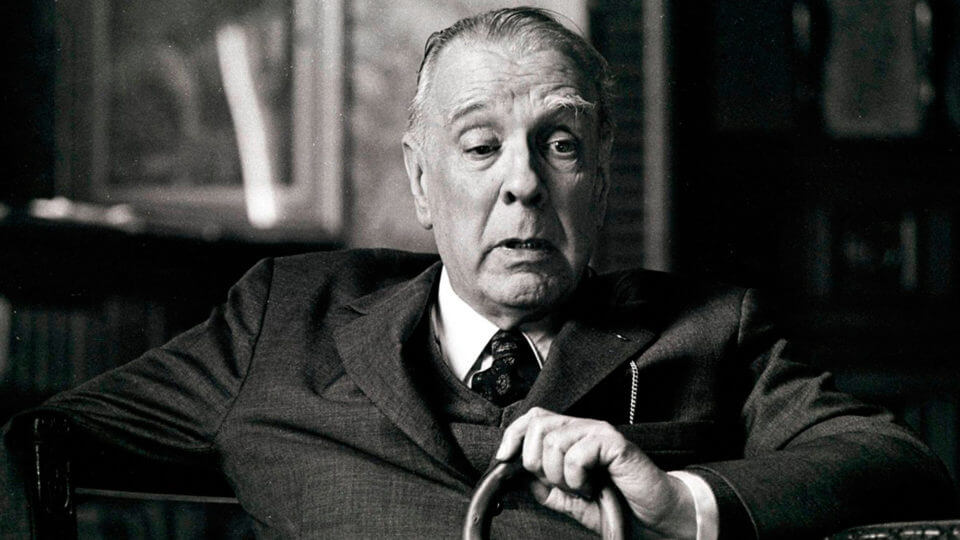
“For this reason, Borges’ short story reveals that the human mind is intelligent precisely because it does not recollect too much.”
Nearly everyone, at least once in his life, has dreamt of remembering everything he has ever experienced—every single moment: “How exciting would it be, if I could fix in my mind every single detail of this landscape, every flower, every blade of grass?” One Argentine writer, however, cautioned against this fantasy. Jorge Luis Borges’ 1944 anthology Ficciones contains a short story, “Funes the Memorious,” that explores the exceptional mind of Ireneo Funes, a boy who remembers everything he experiences. Borges writes:
“For nineteen years, he said, he had lived like a person in a dream: he looked without seeing, heard without hearing, forgot everything—almost everything. On falling from the horse, he lost consciousness; when he recovered it, the present was almost intolerable it was so rich and bright; the same was true of the most ancient and most trivial memories.”
Funes, in Borges’ telling, is not only capable of remembering every experience, but he also recalls every detail of each experience. And he, thus, recollects the particulars of every moment he has spent living:
“We, in a glance, perceive three wine glasses on the table; Funes saw all the shoots, clusters, and grapes of the vine. He remembered the shapes of the clouds in the south at dawn on the 30th of April of 1882, and he could compare them in his recollection with the marbled grain in the design of a leather-bound book which he had seen only once, and with the lines in the spray which an oar raised in the Rio Negro on the eve of the battle of the Quebracho.”
Funes’ mind is an exceptional one, it might be argued. This might even be the mind of a genius whom everyone envies. However, this is not so in Borges’ estimation, “A little later he realized that he was crippled. This fact scarcely interested him. He reasoned (or felt) that immobility was a minimum price to pay.”
A mature human mind is capable of abstraction. It can observe multiple contingent, concrete objects of reality, and this mature mind derives mental concepts that are able to classify and group what it perceives. This is essential—needless to say—for proper human communication. For instance, when one states the word “tree,” everyone understands that he is referring to a plant with a distinguishable trunk, along with branches and leaves. Anytime one mentions this word, there is no need to explain what a tree is or—even more—to point to one in the material world. The concept “tree,” as such, does not reflect any one, existing tree. It simply summarizes the main characteristics that all trees have in common. So, what would happen if—as in Funes’ case—every single tree one saw became a perfectly discernible memory: one tree that is distinct from every other?
The main purpose of human life is to interact fruitfully with reality—not to memorize it.
Funes’ mind works like a movie camera: It records reality and then, subsequently, is able to access every stored clip. However, it is unable to categorize these clips. While for the rest of us, a memory of a grove of olive trees is comprised of indistinguishable trees, for Funes, each olive tree is a peculiar thing that he cannot avoid remembering. As Borges puts it:
“Locke, in the seventeenth century, postulated (and rejected) an impossible idiom in which each individual object, each stone, each bird and branch had an individual name; Funes had once projected an analogous idiom, but he had renounced it as being too general, too ambiguous. In effect, Funes not only remembered every leaf on every tree of every wood, but even every one of the times he had perceived or imagined it.”
Unfortunately, for Funes, the impossibility to abstract concepts prevents associations between thoughts. This means that Funes cannot reflect on the contents of his mind, given that he is eternally destined to photograph reality. At best, he can access the shots and contemplate them. Still, he is lost in overwhelming details, and he can hardly be called a genius. If anything, in practice, he would be better classified as dull. For this reason, Borges’ short story reveals that the human mind is intelligent precisely because it does not recollect too much; the human psyche functions in a way that comprehension wins out over contemplation. The main purpose of human life is to interact fruitfully with reality—not to memorize it. Interaction implies action—not contemplation. Funes, on the other hand, is lost within an eternal, motionless contemplation of reality. Human brains, after all, are designed for understanding the world so as to allow the bodies to which they are attached to act within it.
So it seems clear that remembering every minor detail of life is hardly desirable, but, on the other hand, what happens if one were systematically to forget all of the details of the world?
This is a situation we experience every day. We wake up in the morning; we wash our face; and we have breakfast. We do not notice the placement of ornaments in the living room, the reflections of objects in the foyer mirror. We look out through the windows but fail to notice each branch and tree leaf in the garden. The manifold details of daily life are largely forgotten. Imagine, then, if one were to lose interest in reality precisely because of this realization.
This is an idea explored by the Italian writer and poet Cesare Pavese in his 1947 Dialogues with Leucò through the character of Hesiod. In Pavese’s conception, Hesiod is the typical mortal who realizes the impossibility of experiencing the fine, detailed beauty of individual aspects of reality more than once. For instance, the first time that a person encounters a new type of flower, he is profoundly captured by its geometric shape, by the hue of its petals. However, the second time he sees this same flower—or perhaps even steps on it accidentally—there is no marvel; the wonder is gone. As Pavese puts it through the character of Hesiod, “If I think of some event that has happened, of seasons already past, it seems to me that I was happy then. But day by day it’s different. I feel a weariness for things and works that a drunkard feels. Then I stop work and climb up here on the mountain. But when I think back, it seems to me again that I’ve been happy.” (As I have described elsewhere, this same psychological mechanism is also triggered when we feel melancholic.) Throughout the dialogue, Hesiod engages with the character Mnemosyne, who is a personification of memory itself, and Mnemosyne has a divine sort of memory that can retain the quality of all experiences.
And Mnemosyne tells Hesiod, “But you said that instant was a memory. And what else is memory but an experience repeated in its intensity?” Memory, for Mnemosyne, represents the possibility of experiencing—in any moment—the particular details of every aspect of reality: what makes each detail unique and, therefore, meaningful. Hesiod is, instead, destined to remember only the aspects abstracted from reality: what makes each particular object indistinguishable from all other objects of its same kind. Therefore, each object, for Hesiod, becomes meaningless.
As both Borges and Pavese—in their own way—suggest, humans are confronted with a never-ending trade-off. We are tragically suspended between contingency and abstraction—between the particular and the general. Yet, one begins to get the suspicion that it is actually this eternal contest that is the key to safeguarding our cleverness.
Simone Redaelli is a molecular biologist and a PhD candidate at the University of Ulm in Germany. He is a vice-director at Culturico, where his writings cover literature, sociology, and the philosophy of science.











Thanks for the article, great to see Borges being mentioned on here, and a really interesting topic.
I write in the defence of Funes (the Magnificent).
Funes is not a mere ‘memory machine’ – he does not simply ‘remember lots of stuff’. If I remember correctly (please note I am not in fact Funes or a being with similar powers), Funes is able to construct his own unique ‘system of numbers’, he surpasses the number twenty-four-thousand. Though, admittedly, his system of numbers may be useless and deeply faulted as Borges points out (it is a series of seemingly unconnected words like ‘The Railroad’ and ‘sulphur’). Nonetheless, it is clear Funes not only has incredible powers of memory but that he can use his memory to create (he can put his memory to use). This implies that, perhaps, a person with the powers of Funes could be of great use to the world (and hence he could live a very fulfilling life), is there no field that could benefit from his skillset?
Moreover, is it really ‘clear that remembering every minor detail of life is hardly desirable’ – after all, Funes himself says his immobility is a small cost for his new experience of life. This clearly suggests the opposite, ‘remembering every detail of life is [or could be, highly] desirable’. However, how can we really say if having the mind of Funes is really undesirable – it is so far away from our reality.
Lastly, Funes, in my opinion, is not dull, or if he is dull he pushes dullness to such an extreme that it crosses over (or touches) the border of ‘fascinating’. He offers an abstruse and unique view of the world such as ‘Not only was it difficult for him to comprehend that the generic symbol of dog embraces so many unlike individuals of diverse size and form; it bothered him that the dog at three fourteen (seen from the side) should have the same name as the dog at three fifteen (seen from the front)’. This statement is so peculiar…I find it enchanting.
All the best,
David